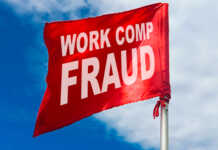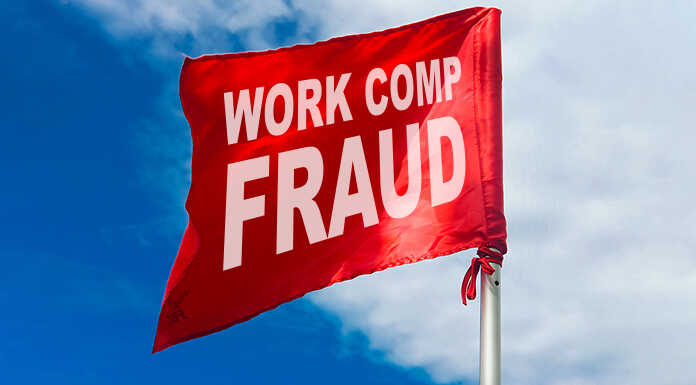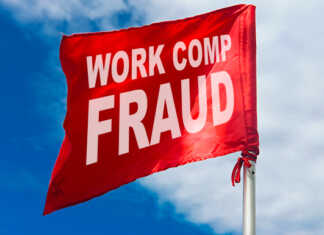Most people have some understanding of what fraud is, and when asked, they might say, “Someone lying to get something they didn’t deserve.” But what does fraud mean in the workers’ compensation landscape? What is needed to prove workers’ compensation fraud? And what can an employer or employee do when they suspect someone is committing work comp fraud?
What is workers’ comp fraud?
Workers comp fraud is an inaccurate or fabricated claim made by an employee, employer, or provider in order to benefit financially. This can include lying about an injury, exaggerating the severity of an injury, or misclassifying employees. Workers’ comp fraud cases can eat up resources through lengthy investigations and increase business owners’ premiums.
An example of workers’ compensation fraud
Claimant fraud occurs when an employee makes a false claim of injury or makes a material misrepresentation that would impact the claim.
Some examples of this would be if an employee claims an injury arising from their employment when they weren’t injured at all. Or this employee was injured away from the workplace, or, not as injured as they claim to be.
There are required elements that must be proven in order to allege that workers’ compensation fraud occurred. You need the intent to tell a lie, and that lie results in a benefit they would not have received if not for that lie being told. Additionally, and very importantly, you need proof that the lie occurred. A lie alone without evidence is not enough. Evidence includes a lie on record, like in a deposition, and witness testimony and good video surveillance.
What can an employer do to protect their business from fraudulent claims?
ICW Group encourages employers to immediately investigate upon notice of an injury. Investigations might include:
- Taking statements of witnesses
- Taking photos of the accident site
- Collecting any area surveillance of the job site where the alleged accident took place
Any information collected can be considered evidence. We’ve got a five-part workers’ comp fraud investigation series that offers information and resources to help identify and report on fraudulent claims in the workplace.
If a fake claim is suspected, insureds should report work comp fraud to our anti-fraud hotline, 855-ICW-FRAUD (855-429-3728), which allows individuals to report suspicious workers’ compensation claims directly to our Special Investigations Unit team, even anonymously.
ICW Group policyholders also have access to free anti-fraud collateral and resources to help educate themselves and their employees about the risks of committing fraud.

















